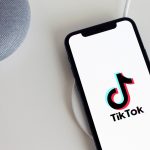To get a roundup of TechCrunch’s biggest and most important stories delivered to your inbox every day at 3 p.m. PDT, subscribe here.
Welcome to Daily Crunch for Monday, May 17. We have a lot to get to, so we’ll keep our introduction incredibly curt and simply note that early-stage founders can still apply to the upcoming TechCrunch Battlefield event for another week or so. Neesha has the details here. — Alex
TechCrunch Top 3
Today the biggest stories concern the never-ending flow of cash to insurtech, the ability of software companies to post accelerating revenue growth, and the market leverage of major tech platforms:
Jerry raises $28M: Adding another name to the list of startups working on building insurance marketplaces, Jerry has a twist on the model and a huge new infusion of cash. The startup wants to help consumers do more than just find insurance, pursuing the superapp concept, but in a new direction. For more on insurtech marketplaces and their growth, head here. (Insurtech is super hot in aggregate, it’s worth remembering.)
Monday.com is going public: We’ve long known that corporate communications and planning startup Monday.com was north of $100 million in annual recurring revenue. Now, at last, it has filed to go public. So we ripped into the numbers, which show accelerating revenue adds. More importantly than the raw math, however, was the implicit point from the news that the IPO markets remain open, and for more than just the latest SPAC deals. That’s good news for late-stage startups everywhere.
Apple adds lossless for no cost: Spotify wants to charge for higher-quality streaming. Apple has decided not to. And that’s not great news for the smaller company because it needs to boost its revenue per user over time. Apple, which has infinite money, does not. The Spotify-Apple war is a notable one to watch because it pits an incumbent upstart against an upstart incumbent in the music streaming space. Let’s see how Spotify fires back.
Startups and VC
It appears that every startup in the world just raised more money, so here’s a rundown of the latest deals in quick-fire fashion, ordered by size:
Fave raises $2.2M to connect fans and creators: Founder Jacquelle Amankonah Horton wants to close the space between fans and the creators they love. Given the general market focus in recent quarters on creators, the company makes sense.
Merge raises $4.5M for its HR and finance API: Merge offers a single API to connect products to all sorts of finance and HR products. It’s akin to a super API. And with what we presume is a developer-led sales motion and on-demand pricing, it’s right in the middle of the current startup business model zeitgeist.
Telda raises $5M for Egyptian neobanking: The Telda round is cool not only because we don’t cover Egyptian tech enough, but also because there’s Sequoia money in it. American VCs are looking farther and farther afield for their next deal.
Houm raises $8M for LatAm home sales: TechCrunch described Houm as “an all-in-one platform that helps homeowners rent and sell their properties in” Latin America. The recent Y Combinator grad took part in the accelerator’s winter 2021 batch.
Code Ocean raises $21M for collaborative data science: In short, Code Ocean provides data jockeys with a “small-scale container platform that lets you wrap up all the necessary components of your data and analysis in an easily shared format,” Devin Coldewey reports. And now it has a lot more money to chase that vision.
Ankorstore raises $102M to supply indie stores: Hailing from France, Ankorstore provides wholesale items to smaller retailers. And Tiger just poured capital into the company, meaning that the startup has some of the most intriguing financial backing out there today.
One more hardware SPAC: Bright Machines is going public via a SPAC. Our own Ron Miller helped us dig into the company and its accounting results.
The battle for voice recognition inside vehicles is heating up
Until recently, integrating affordable voice-recognition software into an automobile was something from science fiction.
But last year, the percentage of vehicles offering in-car connected services reached 45%. By 2024, analysts predict cars with voice recognition will comprise 60% of the market.
Considering how much time many of us spend behind the wheel, there’s an infinite number of applications for the technology. For our latest Extra Crunch market map, we sized up the general market opportunity before creating a roster of major players and reaching out to investors to see where they’re placing bets.
(Extra Crunch is our membership program, which helps founders and startup teams get ahead. You can sign up here.)
Big Tech Inc.
Akin to the startup market, Big Tech was incredibly busy in the last few days, so here’s your run-through:
JD.com’s logistics subsidiary is going public: Good news from the Chinese startup market has been somewhat rare lately. Here’s some, which not only helps change the narrative a bit about the country’s tech scene, but also underscores how bonkers the global e-commerce market is.
SpaceX sent out 52 more Starlink satellites: Bring on rural, high-speed internet. So we can all move to Montana. (Please.)
GoJek and Tokopedia are GoTo Group: The expected combination of “Indonesia’s two biggest startups” is done, TechCrunch reports. GoJek, of course, is in the ride-hailing business, while Tokopedia is a marketplace. Now it’s a single, massive entity.
Microsoft makes Teams better for your parents: What happens when your Discord deal dies? Well, you make your current chat-video-groups service better for regular folks, it turns out. Aside from gaming, Teams may be Microsoft’s best shot at a consumer play that works out for some time.
Finally, BigTelco companies ditching media assets to de-lever ahead of higher infrastructure spend? Say no more, AT&T, we’re already hip to it. (Or they could just limit some shareholder return programs for a bit. You know?)
Powered by WPeMatico






